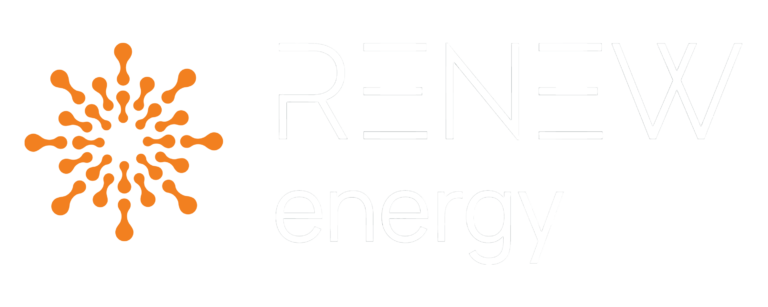As Virginians embrace clean energy, more homeowners are discovering the benefits of installing solar panels. From financial savings to environmental impact, solar power offers a promising future for residential energy. The VA Solar Panel Program and other Virginia residential solar incentives make this transition even more accessible by reducing upfront costs and improving long-term returns. With diverse incentives designed to promote solar adoption, Virginia’s solar landscape offers abundant opportunities for those interested in renewable energy.
Key Benefits of Going Solar in Virginia
Virginia’s solar incentives are not only beneficial for homeowners looking to cut energy costs but also provide significant contributions to sustainability. Here are some of the key advantages of investing in residential solar:
Reduced Energy Costs: Creating your own electricity allows you to become less dependent on the traditional power grid, leading to significant reductions in your energy expenses. This not only empowers you to take control of your energy usage but also contributes to long-term savings on your utility bills.
Increased Property Value: Properties equipped with solar energy systems frequently experience a notable boost in their market value. This enhancement can be attributed to the growing demand for sustainable living solutions and the long-term savings on energy costs that these installations offer.
Environmental Impact: Solar energy plays a significant role in decreasing greenhouse gas emissions, which is crucial in our efforts to combat climate change. By harnessing the power of the sun, we can generate clean electricity and reduce our reliance on fossil fuels. This transition not only lowers harmful emissions but also contributes to a healthier planet and a more sustainable future.
Financial Incentives: Virginia provides a variety of programs and tax credits designed to make solar energy installations a financially feasible option for numerous homeowners. By exploring these valuable benefits in detail, we can better understand how Virginians can take advantage of the state’s most advantageous solar programs and incentives.
Virginia’s Solar Renewable Energy Credit (SREC) Program
One of the most appealing incentives for Virginia homeowners is the Solar Renewable Energy Credit (SREC) Program. When you generate solar energy, you earn SRECs that can be sold to utility companies, which are required to purchase a certain amount of renewable energy. Each SREC represents one megawatt-hour of solar electricity produced, providing an income stream to homeowners with solar installations.
This program is particularly advantageous for homeowners generating more electricity than they consume, as selling these credits offsets the initial cost of the solar installation.
How SREC Works:
- Homeowners earn SRECs for the power generated by their solar panels.
- These credits can be sold to utilities, creating a steady revenue stream.
- Participating in SREC allows homeowners to see quicker returns on their solar investments.
Net Metering for Solar Panels in Virginia
Net metering is a valuable benefit for Virginians participating in the VA Solar Panel Program. Through this program, homeowners with solar installations can feed excess electricity back into the grid, earning credits on their utility bills. During times when your panels aren’t generating electricity, such as at night, you can use these credits to offset electricity drawn from the grid.
This system is beneficial for reducing energy costs and maximizing the value of your solar installation.
Advantages of Net Metering:
- Reduce or eliminate electricity bills by offsetting energy costs.
- Utilize all the energy your solar system generates, making it a highly efficient choice.
- Benefit from monthly or annual utility bill savings.
Federal Solar Investment Tax Credit (ITC)
Although not specific to Virginia, the Federal Solar Investment Tax Credit (ITC) provides substantial savings for residential solar installations. Homeowners can currently claim a 30% tax credit on the cost of their solar system, which includes panels, labor, and associated equipment. This tax credit applies to both purchased and financed solar systems, lowering the overall financial burden of going solar.
With this credit in place until 2032, Virginia homeowners can significantly reduce the initial investment in solar energy, making this incentive one of the most impactful for residential solar adopters.
Key Points about the Federal ITC:
- Applies to new solar installations with a credit of 30%.
- Covers all solar-related expenses, including panels, batteries, and labor.
- Encourages greater savings for homeowners looking to make a sustainable energy switch.
Virginia’s Property Tax Exemption for Solar Installations
Installing solar panels typically increases the value of a home, which might lead to higher property taxes. However, Virginia’s Property Tax Exemption for Solar Installations prevents any increase in property taxes due to the added value of solar energy systems. This exemption allows homeowners to reap the benefits of increased home value without added tax costs, making solar installations an even more attractive investment.
Benefits of the Property Tax Exemption:
- Protects homeowners from property tax increases due to solar installations.
- Helps retain the full financial benefit of the solar system.
- Encourages more Virginians to consider solar energy as a viable option.
Financing Options and Solar Loans in Virginia
To further assist homeowners, Virginia offers various financing options and solar loan programs, making it easier to afford solar installations. These loans often feature low interest rates and long repayment terms, allowing homeowners to spread the cost of solar installations over time.
Top Financing Options:
- Solar Loans: Offered by both private banks and credit unions in Virginia, solar loans provide an affordable way to finance solar projects.
- Power Purchase Agreements (PPAs): In PPAs, a solar company installs and maintains the system, and the homeowner pays a fixed rate for the electricity generated. This option requires minimal upfront investment.
- Home Equity Loans: Leveraging the equity in your home can be an effective way to fund solar installations, often with favorable interest rates.
By providing various financing options, Virginia ensures that solar power is accessible to a wider audience, removing upfront cost barriers and enabling more homeowners to invest in renewable energy.
Making the Most of Virginia Residential Solar Incentives
If you’re considering installing solar panels, understanding and maximizing Virginia’s residential solar incentives is crucial. The VA Solar Panel Program, alongside other incentives and financing options, creates a supportive environment for homeowners ready to transition to solar energy. Consulting with solar experts or installers familiar with Virginia’s programs can provide tailored advice on how to benefit from these incentives..
Embrace a Sustainable Future with Virginia Solar Incentives
In conclusion, Virginia’s dedication to renewable energy shines through in its range of Virginia residential solar incentives. Programs like the VA Solar Panel Program and the Federal ITC make solar energy an affordable and profitable choice for homeowners across the state. With a variety of incentives, rebates, and financing options available, transitioning to solar power is not only accessible but financially smart.
By harnessing these resources, Virginia residents can achieve energy independence, contribute to a cleaner environment, and invest in a sustainable future. Whether you’re motivated by cost savings or a commitment to renewable energy, Virginia’s solar incentives make it easier than ever to go solar.








